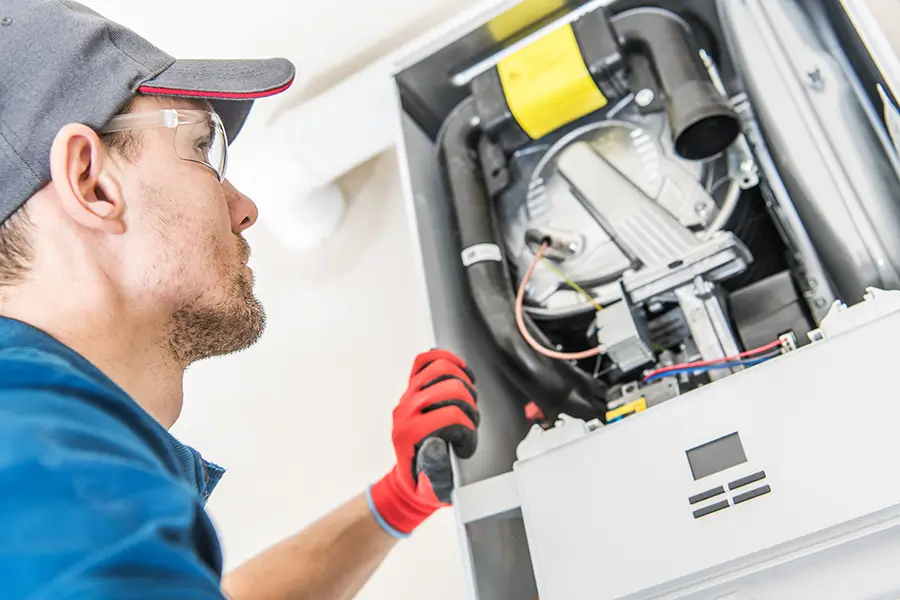Commercial & Residential Oil Tanks
Heating Oil Tanks
Heating Oil Tank Installation
Tank Removal
Regular Inspection & Maintenance
Tank Replacement & Relocation
Leak Detection & Repair
If you’re ever faced with a fuel tank crisis, our team is here to provide emergency service 24 hours a day, keeping you and your property safe from a major fuel tank disaster.
Contact HOP Energy For Professional Service
We provide heating oil tank services to clients in Connecticut, Delaware, Massachusetts, New Jersey, New York, Pennsylvania, Rhode Island, and Vermont. With an industry-leading team of fully insured and licensed technicians, we’re here to keep our local communities safe and comfortable, no matter what their heating needs look like.
Tank Installation
Heating Oil Tank Repair
Even with proper care and maintenance, your fuel tank may eventually need to be repaired or replaced. We have extensive experience repairing and replacing heating oil tanks, and we can help you get your tank back up and running quickly and efficiently.
Heating Oil Tank Removal
Removing oil tanks can be a tricky process. Thankfully, our team has years of experience safely removing these products, and we work around your schedule to ensure that your tank gets removed with no extra paperwork or clean-up required.
Heating Oil Tank Replacement
If your heating oil tank is beyond repair, we’re here to help. We offer a wide selection of heating oil tanks designed for all needs and budgets so that you can find the perfect tank for your home, installed around your schedule.
Heating Oil Tank Installation
Need a new fuel tank? We’ve got you covered. Our installation technicians for above-ground tanks work diligently to get your new tank installed as quickly and efficiently as possible so that you can start heating your home in a fraction of the time.
Meet The Fuel Tank Experts

Residential Oil Tank Service

Commercial Oil Tank Service

Preventive Maintenance
Our Blogs
The Details of Buying and Selling Your Home
Spend Time With Your Thermostat… Spend Less on Fuel
How HOP Energy Delivers Exceptional Service: A Customer Success Story
Frequently Asked Questions
You can check how much fuel is left in your oil tank by reading the fuel gauge located at the top of the tank.
However, if you depend on HOP Energy for your home heating oil delivery, your usage and local weather patterns will be monitored to help the company determine when you need more heating oil.
According to the EPA, “tanks used for the storage of heating oil for consumptive use on the premises where stored are excluded from federal UST regulations. However, state or local regulatory agencies may regulate these tanks."
The most common size heating oil tank holds 275 gallons of heating oil. However, residential tanks can range from 105 gallons to 500 gallons. Look at the gauge at the top of the tank to see if the volume is available.
Yes, experts recommend cleaning your oil tank at least once every five years. This is dependent on the type of tank and where it is stored. During a heating oil delivery, your above-ground tank will be visually inspected for signs of damage.
Yes, it is okay to place a heating oil tank outside. Outdoor tank installations can be either above ground or underground. While storing your heating oil tank outside is acceptable, they tend not to last as long as those stored indoors.
Schedule an appointment with your local HOP Energy subsidiary for your annual heating system tune-up to ensure your system is operating at peak efficiency. At this time, you can ask how to improve your home’s energy efficiency by installing upgraded equipment.
Heating oil tanks should be inspected regularly for signs of corrosion, leaks, or damage. While there is no fixed timeline for tank replacement, it is generally recommended to replace older tanks after 15 to 20 years. However, factors such as tank material, maintenance, and local regulations, and tank location can influence the lifespan of a heating oil tank. It is best to consult with a heating professional who can assess the condition of your tank and provide specific recommendations for replacement.
The duration that 275 gallons of oil lasts can vary based on several factors, including the size and efficiency of the heating system, the climate, and the insulation of the building. On average, a typical residential oil heating system may consume around 4-7 gallons per day during the winter months. Based on this estimate, 275 gallons of oil can last approximately 39-69 days. However, it's important to note that individual usage can vary significantly, so it's advisable to monitor your oil consumption and adjust accordingly based on your specific circumstances.
Heating oil tanks come in different sizes, but a common size for residential tanks is 275 gallons. However, tanks can range in capacity from as small as 100 gallons to larger sizes like 500 gallons or more. The specific size of the tank depends on factors such as the heating needs of the property and available space for installation. It's important to note that the capacity of the tank should comply with local regulations and meet the heating requirements of the property. Consulting with a heating professional can help determine the appropriate tank size for your specific needs.
Your Trusted Full‑Service Energy Provider
- New Customer: 866-395-7220
- Customer Service: 833-837-7690
- 4 International Drive, Suite 210, Rye Brook, NY 10573



